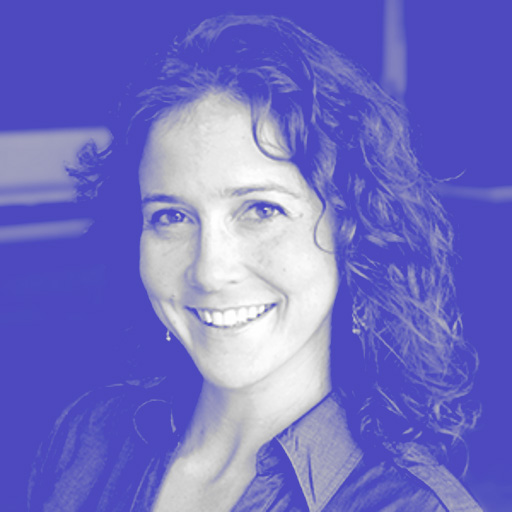Many academics are moving into user experience (UX) design, where there are lots of opportunities for clever people. But is the grass really greener?
In some ways, yes. Having made the move myself, I’ve learned a lot about the benefits and potential drawbacks.
In most UX jobs, the boundaries between ‘work’ and ‘life’ are clearer than in academia, the salaries tend to be higher, and you don’t have to contend with heart-breaking grant cycles.
There is usually both more flexibility and more security, since the industry is flourishing.
And there are jobs in many cities, as well as lots of opportunities to work remotely.
PhD holders are rightly frustrated with the scarcity of academic jobs and the expectation that you (a) relocate to places that may be unsuitable and far from family and friends; and (b) stay there forever.
And, aside from job logistics, I find it appealing to be more connected to the real world results of research.
With UX and other design fields, you are driven by concrete problems and near-term solutions. You can ask, ‘how could this be better?’ and then see it become so over a few weeks or months. That can be incredibly rewarding.
And while a lot of UX positions will have a digital interface component, UX is not just about websites or apps. It is highly relevant for physical devices, and for spaces and services.
How do people interact with their blood pressure monitor? Is this hospital as difficult to navigate as a labyrinth? Is the process of applying for disability benefits harder than your PhD exams?
Well, you could help make them better through good design.
UX in the public sector
Another common myth about UX is that it only happens in the private sector.
As universities generally try to serve the public interest, the private sector might be unappealing for some who are used to those environments.
But UX design is increasingly relevant for public services, from the NHS digital transition to updating touchscreen tablets for DVSA examiners.
Consultancies like SPARCK are hired to tackle these complex and challenging public service needs.
So, what's the downside?
If you’ve been considering a move to UX research, you might worry about whether it’s a good fit for you.
While I found the move to be mostly positive, there were certainly some cultural and personal challenges on the way.
Many academics are not used to working in close teams, or on short deadlines.
We have been taught to ask our own questions and answer them at a relatively leisurely pace, prioritising rigour over speed.
Lots of us are used to setting our own schedules and in many ways being masters of our own ships.
So whether UX will be a good fit for you or not will depend on your personality and priorities, as well as the job specifics. This is perhaps annoyingly noncommittal – but academics should be used to allowing for nuance!
There's more than one type of UX job
First off, there is consultancy versus in-house. If you work for a consultancy like SPARCK, you will get to work on a variety of projects for different clients.
This can keep things interesting and means you won’t be stuck for too long with a project or team with which you don’t connect well.
In an in-house position, you would work for a particular company on their products/services, on which you would develop a deeper and wider perspective.
Some nuance again, though: SPARCK also has multi-year projects, in which people become immersed in a client’s culture.
Either way, you’ll do research in small chunks and identify top takeaways, which can be nice if you’ve felt bogged down by years or even decades spent researching the same topic.
A lot of UX roles are part of a larger R&D team, and you might work closely with people like business analysts and content designers. In many roles you will also work with the software development team.
These team environments can provide some really interesting perspectives on the practicalities of your research findings and give you an opportunity to define and advocate for ‘good research’ in your own terms – because you’ll be the expert.
They can also challenge you to focus on questions and tasks that are immediately relevant to others, instead of what seems interesting to you, and adapt to group workflows.
An ironic side note: a set of protocols called Agile is very commonly used to keep everyone moving together, but they can feel strikingly un-agile to someone used to working alone. Whether this suits you will depend on how strong an independent streak you have.
SPARCK has been very welcoming to me and to other academics who’ve joined the team, and is building a support structure to help ease the transition between academy and industry.
There are increasing numbers of PhD holders on staff and lots of opportunities for sharing knowledge around research methods – which may be appealing if your independent streak is balanced by a love of teaching and mentoring.
People with social science and humanities PhDs have a lot to offer in terms of our ability to think critically and incisively, and to apprehend and translate other peoples' perspectives.
There is, of course, no definitive answer about whether a UX position would suit you. Only you can determine that.
What I would personally like to see is the perceived boundary between academy and industry become much less drastic, with a lot more opportunities to move between these supposedly separate realms.
There is a lot they could learn from each other.
Let's talk
I’m more than happy to chat to any academic researchers who want to know more about my journey into consultancy. You can find me on LinkedIn.
Alternatively, check out SPARCK’s current research vacancies, at sites across the UK and around the world.



